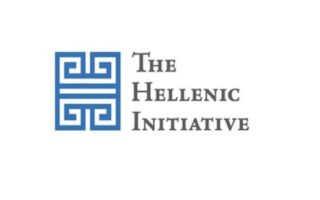Eva Kaili, the Dunning-Kruger effect, and the minimum wage in Qatar

The problem that arose with Eva Kaili goes beyond any bribes, and constitutes a thorn in the Greek state’s side coupled with the latest evidence that shows that Greece leads all EU countries in the perception of corruption. The essence lies in her initial speech in the European Parliament, which was consistent with the perceptions of other Greek officials in Brussels, namely Margaritis Schinas, who is a Greek politician closely associated with New Democracy, and the current vice president of the European Commission for the promotion of the European way of life.
The Greek institutional bodies (the Center of Planning and Economic Research, the Directorate of Economic Services of the Parliament, her political party etc) should have immediately rung the alarm bells regarding Eva Kaili at the moment of her unfortunate speech in which she said: “Qatar is a pioneer in labor rights, abolishing kafala and lowering the minimum wage.” She should have said increasing the minimum wage, not decreasing; however, it was certainly not a simple mistake on her part, but also a lack of general knowledge on the specific subject, and she should also have been corrected by her political party. She exemplified the Dunning-Kruger effect, which states that “a person’s lack of knowledge and skills in a certain area causes them to overestimate their own competence.” By contrast, this effect also causes those who excel in a given area to think the task is simple for everyone, and underestimate their relative abilities as well as withdrawing from public life.
For the record, most (labor) economics students would have insights that the minimum wage in Qatar is US$275 per month (plus bed and board) in 2022 and is significantly lower than the average salary in Qatar, which stands at approximately US$3,600/month, the ninth highest average annual salary in the world, according to the data. The minimum wage for developed countries usually ranges from 35 to 60 percent as a proportion of the average wage according to the International Labor Organization (ILO), yet in Qatar it is less than 10 percent (274/3,600), and about 15% when we take into account bed and board. Her statement was misleading and should have been proportionate and more representative of reality. She showed that she had no understanding of the subject or was on the wrong track, and her political party should have warned her then, not now, to close the matter, because it reflects poorly on Greece.
Therefore, the reasonable questions that arise are how the corruption scandal acts as a spotlight on the skills and abilities of its protagonists, and their qualifications, while other questions also hover over other political “personalities” that we embrace with the full knowledge that they contribute to Greece being a flawed democracy, as well as the corruption capital of the European Union. And that doesn’t seem to bother us.
The Greek institutional bodies should have immediately rung the alarm bells regarding Eva Kaili at the moment of her unfortunate speech
For completeness, not only was Greece exposed but Italy too. In fact, Europe has been exposed because of the emerging corruption in the European Parliament. Unfortunately, the main focus is on Greece because the journalistic discourse internationally has a lot of material from the Greek “underworld” of politics associated with the scandal of wiretapping surveillance.
Finally, beyond any changes in the legal framework to combat corruption, the following quotation attributed to Plato is noteworthy:
“Laws are partly formed for the sake of good men, in order to instruct them how they may live on friendly terms with one another, and partly for the sake of those who refuse to be instructed, whose spirit cannot be subdued, or softened, or hindered from plunging into evil.”
Dr Steve Bakalis is a visiting research fellow at Central University of Finance and Economics in Beijing.





